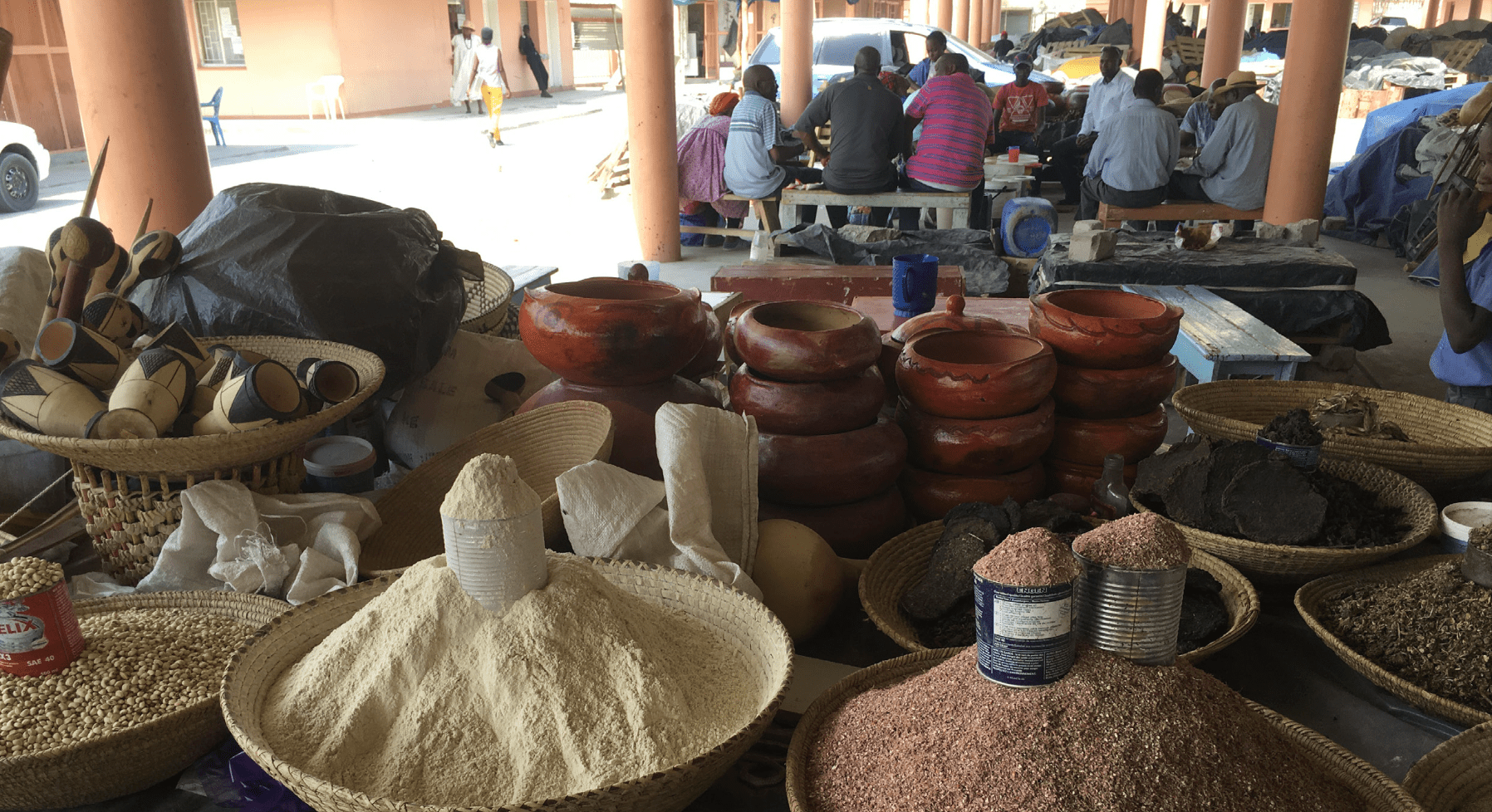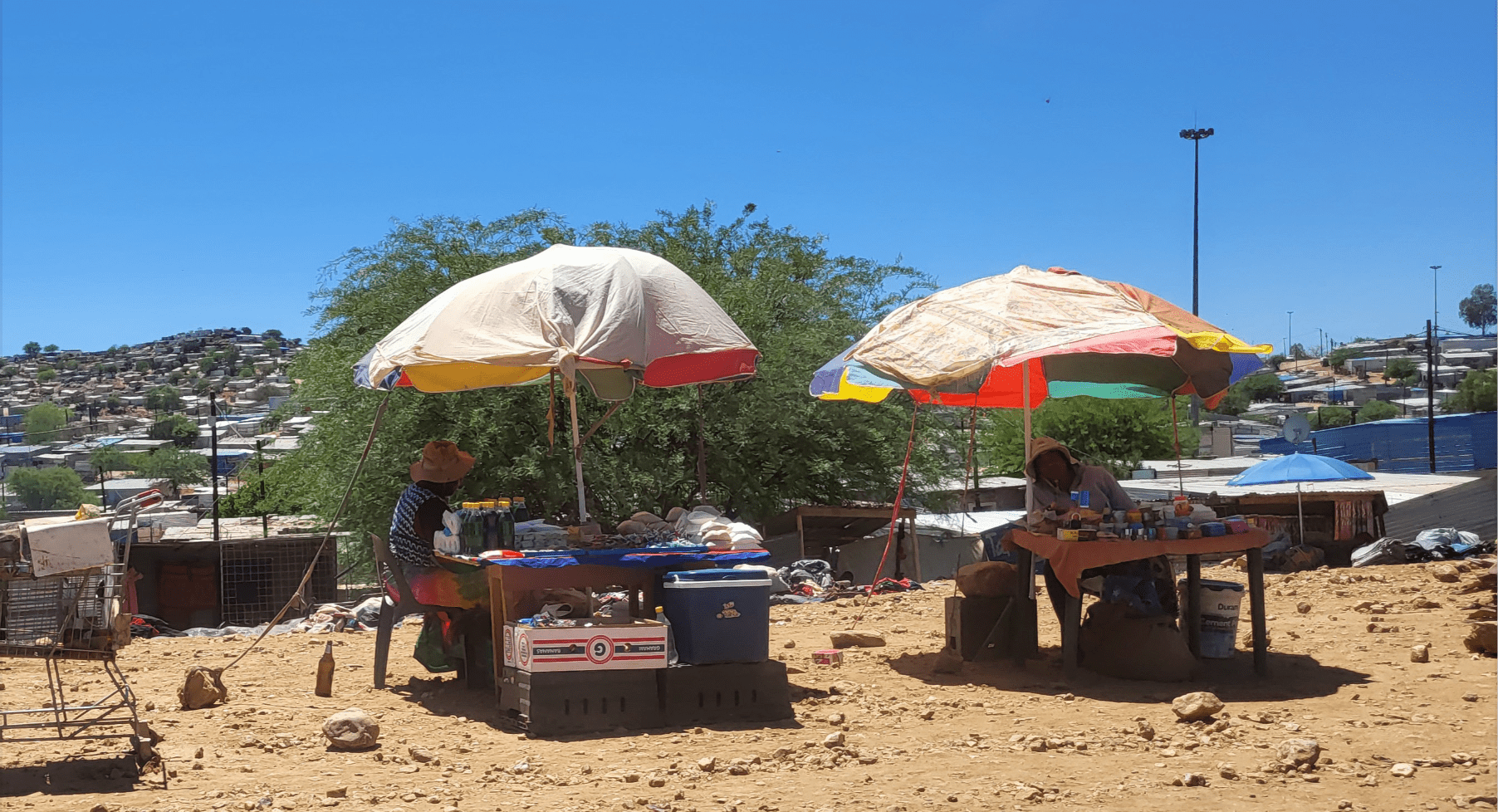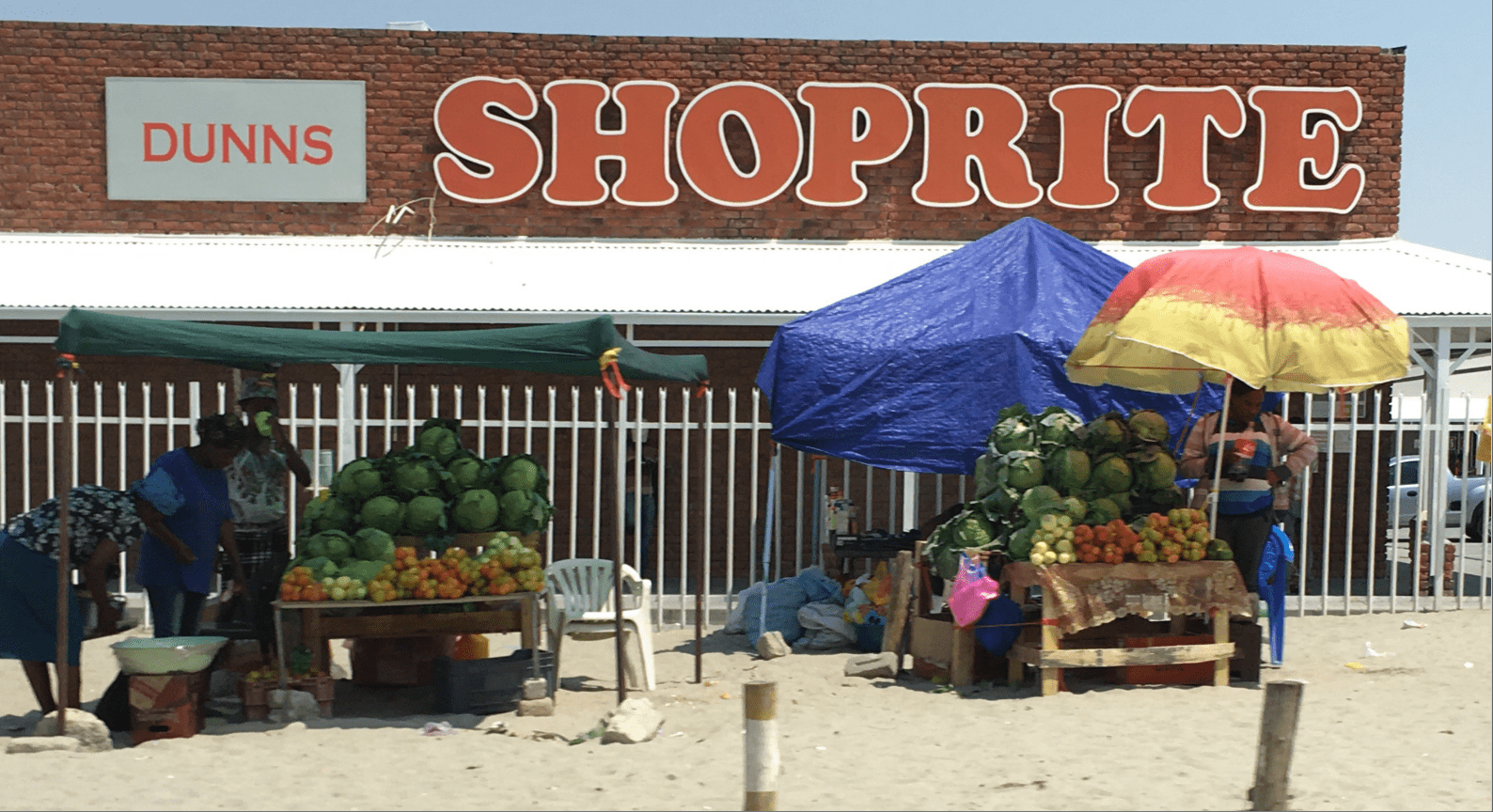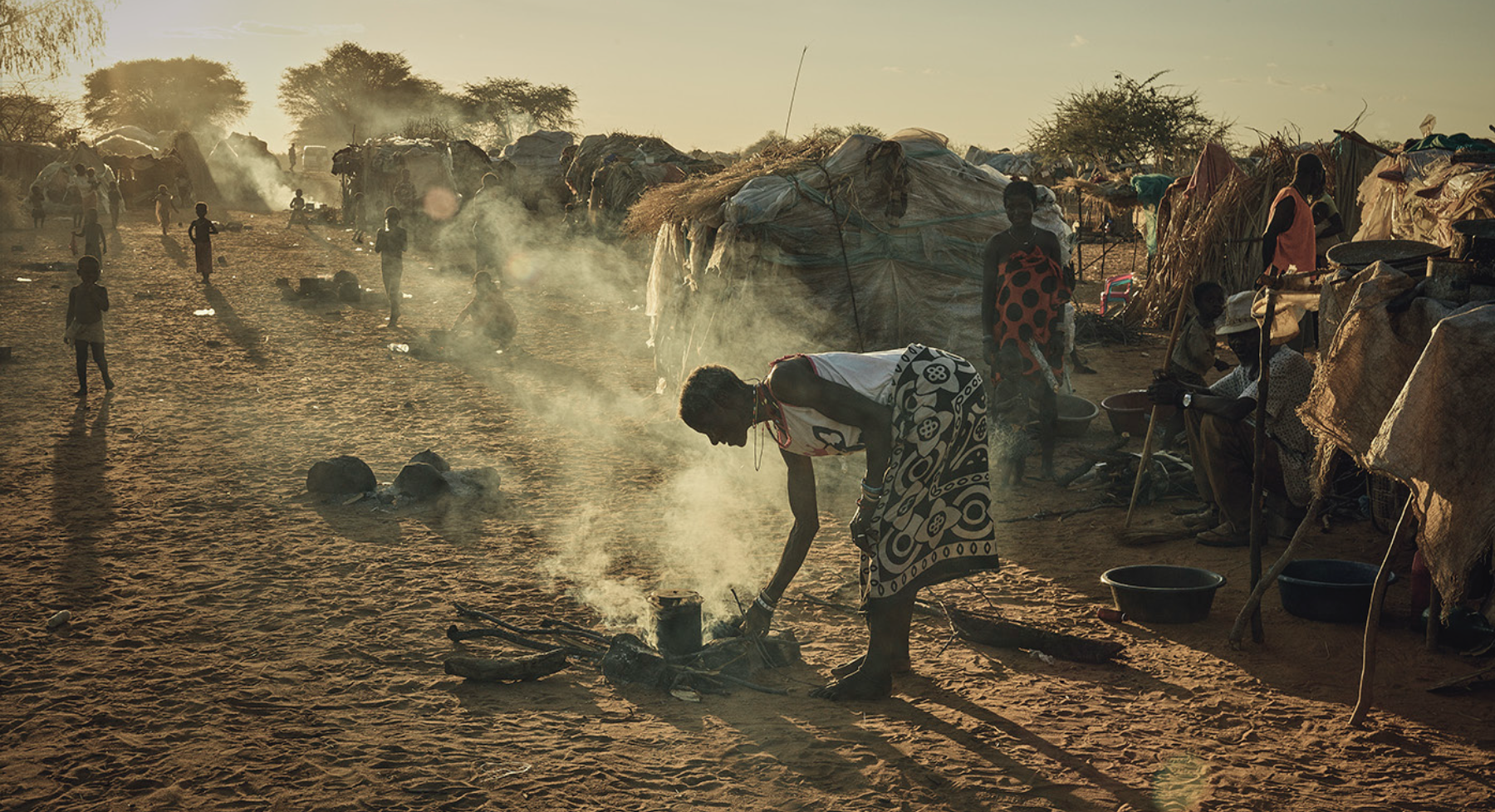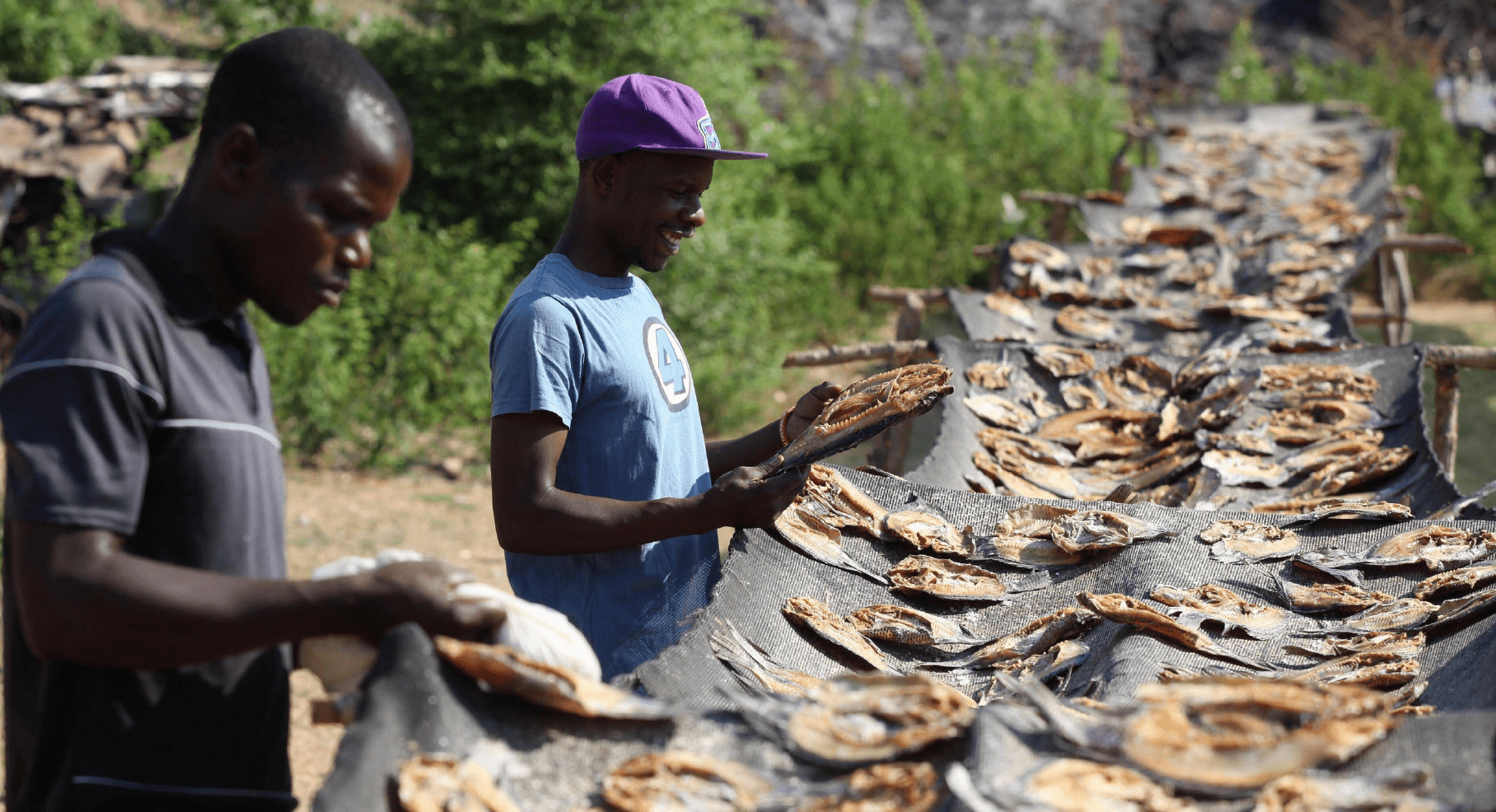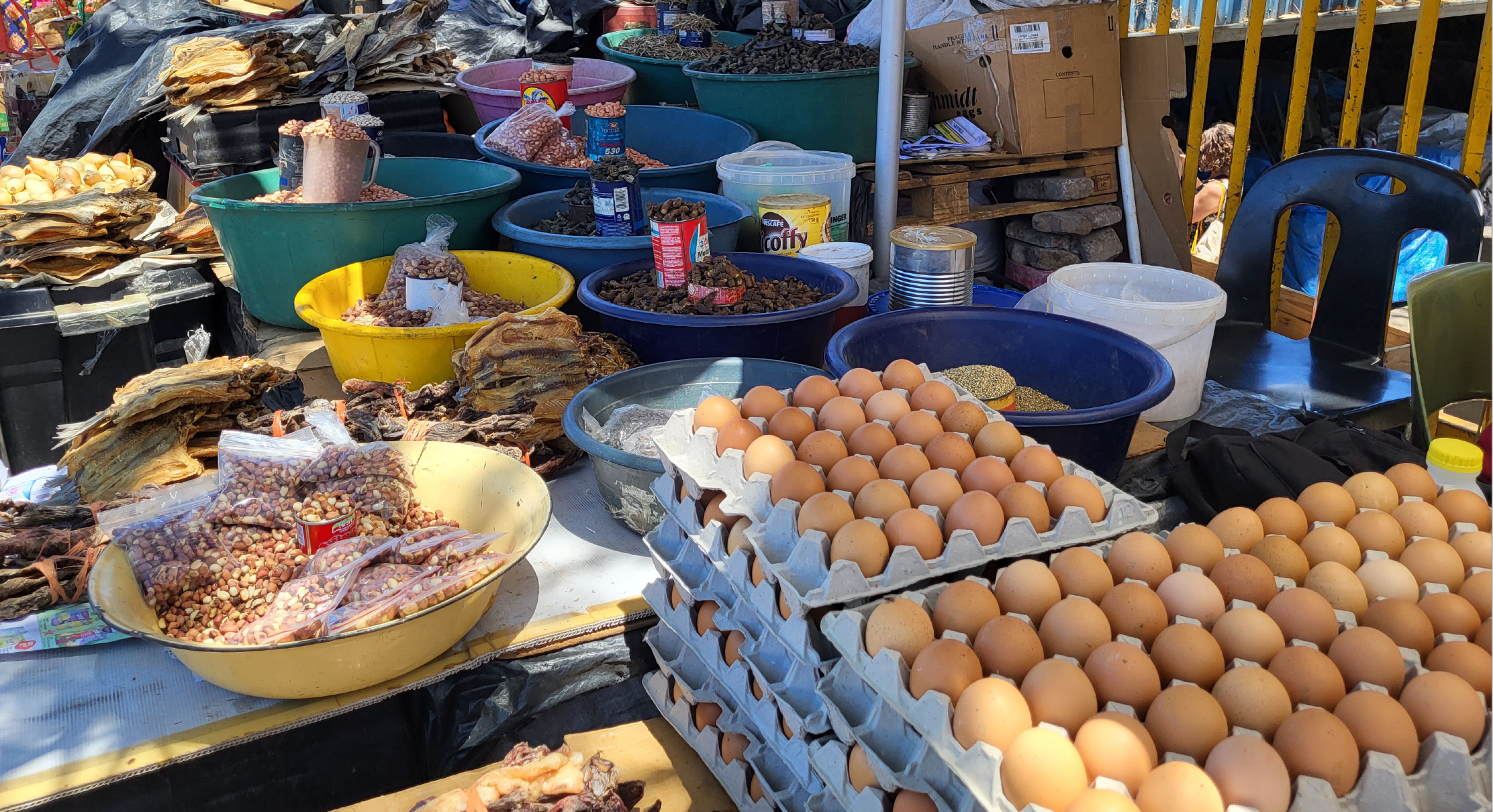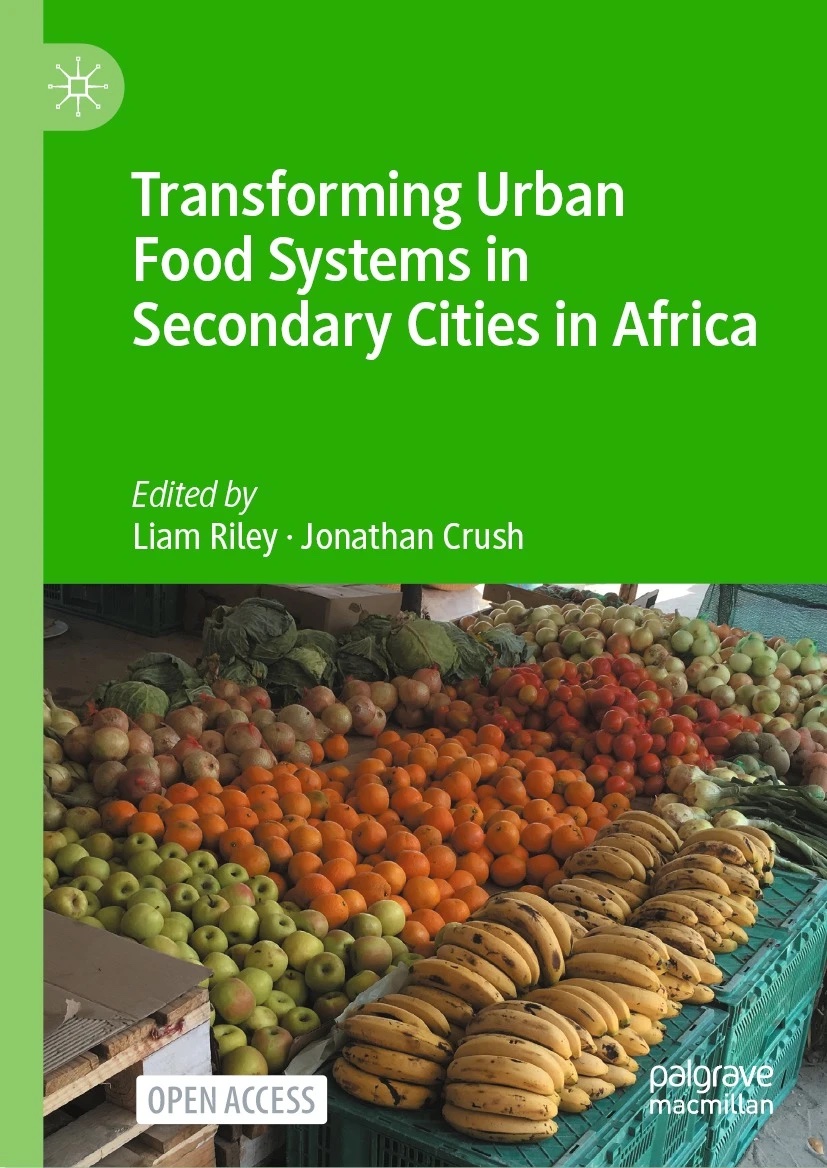NAMIBIA
Since independence in 1990, Namibian development planning and policies have focused more on internal migration than international migration. The abolition of mobility controls imposed by the South African apartheid state on Namibians led to a major increase in rural-urban migration and the rapid growth of urban areas throughout the country. Rapid urbanisation has posed many policy challenges including the growth of informal settlements, urban unemployment, growing poverty and food insecurity, and challenges of housing and service provision for the urban population.
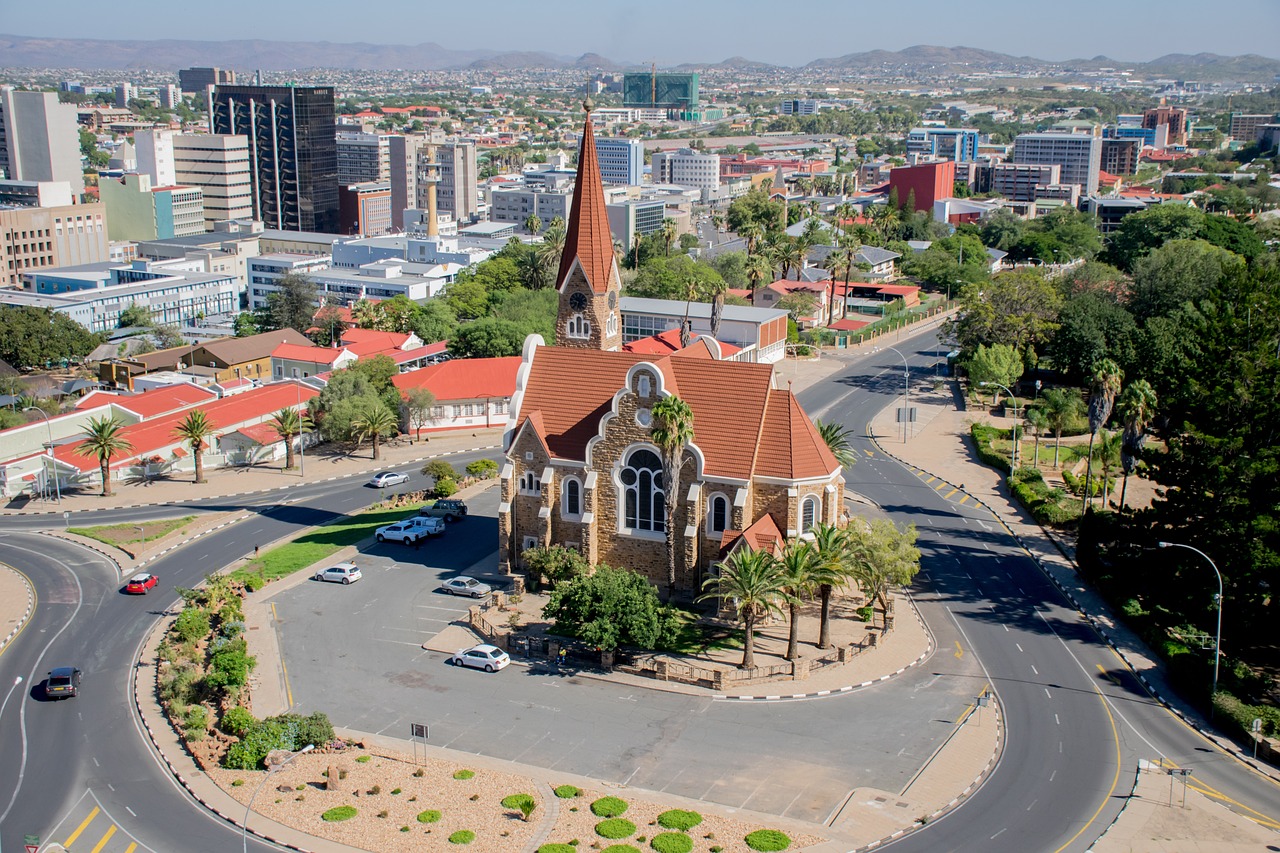
Image by wboroma from Pixabay
RESEARCH on NAMIBIA
MiFOOD PAPERS
JOURNAL ARTICLES
Changing Diets, Varying Food Consumption Patterns, and Food Security among Recent Zimbabwean Migrants in Windhoek, Namibia
In Zimbabwe, decades of economic and political challenges have generated significant out-migration to neighboring countries including Namibia, perceived by many Zimbabweans as being more politically and economically stable than their home country. While numerous studies have documented these movements, few have interrogated the food security of migrants in host countries, where they are likely to face food security challenges. This study thus sought to investigate the changing dietary and food consumption patterns of recent Zimbabwean migrants in Namibia and the ...
Wild and Indigenous Foods (WIF) and Urban Food Security in Northern Namibia
Rapid urbanisation and food system transformation in Africa have been accompanied by growing food insecurity, reduced dietary diversity, and an epidemic of non-communicable disease. While the contribution of wild and indigenous foods (WIF) to the quality of rural household diets has been the subject of longstanding attention, research on their consumption and role among urban households is more recent. This paper provides a case study of the consumption of WIF in the urban corridor of northern Namibia with close ties ...
Application of Item Response Theory Modelling to Measure an Aggregate Food Security Access Score
Food security measurement is of paramount importance as it guides governance, policy formulation and intervention projects targeting and monitoring and evaluation. The measurement of food insecurity has proven to be a difficult task owing to the multi-dimensionality of the construct and different measurements have been developed to measure different dimensions of food insecurity. However, it is difficult to apply the different measurements to a holistic food security measurement as their classification might not agree. The current study proposes a composite ...
The Threat of COVID-19 on Food Security: A Modelling Perspective of Scenarios in the Informal Settlements in Windhoek
Due to the heterogeneity among households across locations, predicting the impacts of stay-at-home mitigation and lockdown strategies for COVID-19 control is crucial. In this study, we quantitatively assessed the effects of the Namibia government’s lockdown control measures on food insecurity in urban informal settlements with a focus on Windhoek, Namibia. We developed three types of conditional regression models to predict food insecurity prevalence (FIP) scenarios incorporating household frequency of food purchase (FFP) as the impacting factor, based on the Hungry ...
Opportunity and Survival in the Urban Informal Food Sector of Namibia
Literature on participation in the informal food sector in cities of the Global South is conventionally characterized by a survivalist or opportunistic perspective. The main difference is that opportunists, in contrast to survivalists, are motivated by entrepreneurial choice rather than necessity and see opportunities for economic and social advancement in the sector. Recent studies in Brazil and India conclude that research on informal sector participation requires a “both/and” rather than “either/or” approach. The main problem this paper addresses is whether ...
Food Insecurity, Dietary Patterns and Non-Communicable Diseases (NCDs) in Windhoek, Namibia
This paper investigates the relationship between dietary patterns and non-communicable diseases (NCDs) in Windhoek based on data from a cross-sectional random sample of 863 households. We identify three major dietary patterns: starch–sugar–oil, fruits–vegetables, and meat–fish, which explain more than 43% of the variation in food consumption. High uptake levels of starch–sugar–oil diets are associated with diabetes, and also increase heart problems. Females were at greater risk of cardio-vascular disease (CVD) and hypertension, while there is an increased risk of disease ...
RESEARCH PROJECTS
Rural-Urban Food Transfers in Namibia. What has Changed in 30 Years? A Case Study of Northern Namibia
The project takes a political economy lens to examine the informal cross-border trade of staple food items from southern Angola into Namibia, examining the activities of small-scale food traders and vendors in three dominant informal food markets at Oshikango, Oshakati and Windhoek in Namibia. The study has three research objectives: (1) to explore the political economy dynamics that contributed to the rise of informal cross-border food trade between southern Angola and northern Namibia; (2) to investigate informal food traders’ experiences ...
Angolan Migrant Exploitation and Vulnerability to Food Insecurity in Transit
Namibia in recent years received an increasing number of migrants from Angola. The recent droughts in the Cunene and Huila provinces in Angola led to mass movements of Angolan migrants into Namibia. Driven out of their country of origin by unemployment, poverty, hunger and general insecurity, the experiences of these migrants when in transit is not well known. This project will explore the vulnerability of Angolan migrants to food insecurity; treatment and exploitative practices, as well as investigate how migrants ...
Remitting for Resilience (R2): Enhancing Food Security and Climate Adaptation Through Gender-Inclusive Migrant Remittances
The R2 grant funded by NFRF in Canada responds to international calls to enhance adaptive capacities and resilience-building strategies to address the risks of climate change to food security, rural and urban livelihoods, and human mobility in Africa. The objectives of the project include: coproducing and mobilizing knowledge about the role of migration and remittances in rural and urban resilience to climate change; identifying adaptation strategies for enhancing remittance infrastructure resilience and leveraging remittances for reduced food insecurity among migrants ...
QES-AS Program: Governing Urban Food Systems in the Global South
The Hungry Cities Partnership has received a four-year (2017-2021) grant from the Canadian Queen Elizabeth II Diamond Jubilee Scholarships advanced scholars program to fund the exchange of doctoral, post-doctoral and early career scholars between Canada and partner cities. Learn More (PDF)
IPaSS: Informality, Inclusive Growth and Food Security in Cities of the Global South
This foundation project of the Hungry Cities Partnership is funded by the SSHRC and IDRC under the International Partnerships for Sustainable Societies Program (IPaSS). The project has facilitated the formation of an initial seven-city research and policy network across the Global South linked to researchers at five Canadian universities. The project has embarked on a five-year program of collaborative research on a variety of themes related to inclusive growth and the formal and informal urban food system in the study ...
South African Supermarkets and Food Security in African Cities
This project is being implemented by AFSUN, HCP and the University of Namibia in the HCP-affiliated city of Windhoek, Namibia. The pilot funded by Open Society Foundation South Africa is examining the implications of the supermarket revolution for poor urban communities in the informal settlements of Windhoek. Learn More
Nourishing Spaces
The African Centre for Cities, the HCP partner in South Africa, has launched a new IDRC-funded project which investigates urban food systems in the prevention of non-communicable diseases (NCDs) in South Africa, Kenya and Namibia. Learn More
Migrants in Countries in Crisis (MICIC)
The African Centre for Cities, the HCP partner in South Africa, has launched a new IDRC-funded project which investigates urban food systems in the prevention of non-communicable diseases (NCDs) in South Africa, Kenya and Namibia. Learn More (PDF)
Women Feeding Cities Project: Gender-Transformative, Resilient, and Sustainable Covid-19 Recovery of the Informal Food Sector in Secondary Cities
This project funded by IDRC will ‘scale-down’ our NFRF-funded Women Feeding Cities Project by focusing on these gaps in secondary cities of less than 500,000 in partner countries. Using a gender-responsive lens, we will investigate the multiple ways in which the Covid-19 crisis has disrupted the livelihoods of women in the informal food economy and the challenges and prospects for sustainable pandemic recovery in four secondary cities in partner countries: Xai Xai (Mozambique), Montego Bay (Jamaica), Oshakati (Namibia), and Tapachula ...
Women Feeding Cities Project: Building a Gender-Transformative, Resilient, and Sustainable Informal Food Sector for COVID-19 Recovery
This Hungry Cities Partnership (HCP) comparative international project is funded by NFRF. It will examine the food security impacts of COVID-19 on micro-enterprises owned by women in the informal urban food sector, their households and communities in four HCP cities: Maputo, Windhoek, Kingston (Jamaica) and Mexico City. It has four main objectives: (a) compare the impact of the pandemic and public health policies on women in the informal food sector in Africa and LAC; (b) examine the responses and strategies ...
Food, Urbanization, Environment and Livelihoods (FUEL)
AFSUN and the HCP have received a grant from the SSHRC Insight Grant program for a program of research, training and policy advocacy on food security in secondary cities in Malawi, Namibia and Cameroon. The FUEL project highlights the rapid transformation taking place in African secondary cities and its impact on food security, food systems, livelihoods, poverty, and governance. Defined broadly as cities with fewer than half a million inhabitants that are not a capital city, secondary cities are absorbing ...
Southern African Migration Programme (SAMP)
SAMP was founded in 1997 as a network of organizations in Southern Africa committed to advancing a regional migration and development agenda through research, training and advocacy. SAMP is an internationally-recognized leader in migration and development research in Africa and has been funded at various times by CIDA, UK-DFID, IDRC and the Open Society Foundation. SAMP is based at the IMRC at the Balsillie School and the University of Western Cape. Learn More
BOOK CHAPTER
Food Insecurity, Food Sourcing and Food Coping Strategies in the OOO Urban Corridor, Namibia
Ndeyapo Nickanor, Lawrence Kazembe, Jonathan Crush • The urbanizing world population has seen increased food insecurity in urban spaces, a result of unsustainable food systems, growing inequalities and weak urban governance that lacks urban food strategies. To improve our knowledge of household strategies employed to survive in urban spaces, we conducted a household survey to examine the relationship between coping strategies, food insecurity and dietary diversity in the secondary cities corridor of Oshakati-Ongwediva-Ondangwa (OOO) in Northern Namibia. The data were ...
POLICY AUDITS
Feeding Cities in Crisis: Gender, Informal Sector and COVID-19 in Namibia
The COVID-19 pandemic presented numerous challenges to public health, the economy, and society across Namibia. Urban centres such as Windhoek became the epicentre of infections, while low-income and informal settlement households faced disproportionate exposure to health risks, loss of income, and food insecurity. The Namibian government implemented public health measures, including lockdowns, mobility restrictions, and the temporary closure of markets, schools, and many businesses. Although these efforts slowed transmission, their social and economic consequences were severe. Comprising over half of ...
THESES
None available

